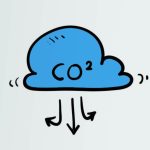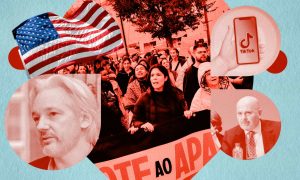Read this article in Italian (Leggi questo articolo in italiano) →
Ultimate goal and Foregrounding
The aim of this reflection is to create favourable conditions for progress by mobilizing the intellectual, spiritual and material forces with a sense of belonging to one and the same human community. This requires finding new ways of living in society and of facing the future together. Living organisms compete for resources, but collaborate for sustaining life on Earth.
Among several luminaries, Adam Smith and Darwin are together with Newton and Locke, at the core of modernity’s mythic structure; one in which we are still struggling.
Capitalism, in effect rooted itself by Adam Smith’s famous book The Wealth of Nations. There, he expresses that each artisan and merchant acts for their self-interest; yet they are led, as if by an ‘invisible hand’ to the welfare of all. His ideas were then further strengthened by Darwin’s theory of human evolution, expressed in his book Origin of Species. His work is based on Malthus’ theory of natural control of human growth in population and linear growth in food supply. In this process the stronger outlives the weaker.
While these two books are considered to be foundational in setting society on a sound footing, they were both missing the spirit and happiness of human beings and sustaining force of ecology at large. These points, however, are understood and clearly indicated by both in their other books, which were considered secondary and thus relegated to oblivion. These are: Theory of Moral Sentiments by Adam Smith and Darwin’s Descent of Man. Human beings gradually acquired ever increasing moral faculties, which will no doubt be inherited by the successive generations. This will lead to the appearance of more virtuous societies that will ensure the continuation of life on Earth.
The following will attempt to fill in the gaps in order to build, perhaps mischievously, the missing links between Smith’s and Darwin’s complementary ideas with the help of other thinkers, with an aim of indicating a way out.
In his famous book Society Must Be Defended, Michel Foucault offers a devastating critique of the systems of power and control inherent in civilization. “He reveals how war is the foundation of all power relations. He, above all, shows that power is not an external force, but a subtle form of control that we all consent to uphold”.
Web Jackson in his book Becoming Native to this Place, indicates how a new bottom-up economy -based on farming and rural living- grounded in nature’s principles, could sustain life on Earth. This would also include reviving dying small towns and rural communities.
The World We Wish to See, by Samir Amin compliments the idea with the need for a new type of democracy, coming from the bottom level, based on local governments, rural communities, workers’ fronts, citizens and the like.
Essential Human Values
The function of most essential human values is to make it possible for every human being to realize or maintain the very highest universal core values of life, love and happiness.
Humans are born within the living system as spiritual (God within), social (Humanity within) and ecological (Nature within) beings. They act from a sense of justice, friendship, loyalty, compassion, gratitude, generosity, sympathy, family affection and so forth. Both at the conscious and unconscious levels, all life processes depend on an immense background of harmonious cooperation, which is necessary to construct a complex system within which the much rarer phenomenon of competition becomes possible. Competition exists but it is limited. Cooperative motivations provide the main structure of the behaviour of Nature’s inhabitants.
Ethics
John Dewey proposed that some societies have progressed morally in much the same way as they have attained progress in science. Scientists can pursue inquiry into the truth of a hypothesis and accept the hypothesis. Nonetheless, they think that future generations can advance science, and they can refine or replace their accepted hypothesis. Within this general framework, we need to consider ethics for our specific purpose, covering our personal relationships and political, economic and business activities.
Personal relationships: Morality and the observation of ethics in personal relationships could at times be conflicting. In such cases, it is helpful to focus on the possible ways in which they are mutually supportive. Only then may we find a clue on how to deal with an apparent or real conflict.
Business ethics: Many times, greed and avarice are the sole engine of business life. The history of business ethics is full of unpleasant stories. Business has existed, if not much earlier, since the ancient Sumerians who carried out extensive trading nearly six thousand years ago.
More than two thousand years ago, Aristotle, who is recognized as the first economist, distinguished two different senses of what we call economics (Oikonomis-household trading and Chrematistke trade for profit). He declared that trade for profit was wholly devoid of virtue and called those who engaged in such purely selfish practices “parasites”. His attack on the unsavoury and unproductive practice of ‘usury’ remained in force virtually until the 17th century and also closer to our time.
Adam Smith canonized the new faith in 1776 in his master work mentioned above The Wealth of Nations, resulting from a new sense of society and human nature. This transformation can be partly explained in terms of urbanization, that is, larger more centralized societies. This included rapidly advancing technology, growth of industry and the accompanying development of social structures and highlighted needs as well as desires. With work, ‘Chrematistke’ became the primary virtue of modern society.
Education
The role of education, training and most importantly of learning, in paving the way towards sustaining a reliable future for life on Earth, is essential. This is particularly true if we are to effectively practice the art of continuing re-creation.
Natural and human sciences mutually support each other by gradually deepening and expanding on both the epistemological and ontological ingredients of learning, with a greater emphasis between education and society as a whole. It should start at the earliest stage, from the cradle so to speak, and continue throughout life, via the development of informal and non-informal types of education.
This requires a type of education that endeavours to encompass all capacities for initiative and creativity, individual and collective, so as to pave the way for communities to take charge of their own life and sustain and maintain their growth, as needed, in the form of G-localization.
J. Krishnamurti, in his book Education and the Significance of Life, neatly sums up the main motive of education therein as being an understanding of ourselves in relation with everything around us. Education in its truest sense is, in fact, the understanding of oneself.
The right kind of education consists in understanding the child as he/she is. Setting unreasonable goals and the imposition of ideologies is unhelpful. Strict discipline encloses the child, breeds fear, and leads to the uncritical conforming to set rules. All this, in turn, breeds in the child a constant conflict between what he is and what he should be.
Freedom and intelligence are implicit in right education, which is not possible if there is any form of compulsion. Intelligence needs to be awakened; it leads to wisdom as it is the integration of reason and love.
To be an integrated human being is understanding the entire process of one’s own consciousness, both hidden and apparent. Hence government control of education is one of the biggest problems in many parts of the world these days. It stunts the growth of human potential and is a calamity.
How can humanity be uplifted when beliefs divide us, when there is domination of one group by another, when the rich are powerful, when there is mal-distribution of land, wealth and when some are well-fed and many are starving?
As human beings, we should have a direct relationship with one another and then, perhaps, there would be love and compassion. Without an inward transformation and self-awareness, human beings will have no peace, no happiness.
Peace on Earth can only be obtained when we understand what lies beyond the superficial, and thereby stop this wave of destruction which has been unleashed by our own aggressiveness and fear. Only then, may there be hope for a sustainable future. The future will depend on how we educate ourselves and the generations to come.
A successful contemporary example: Montessori Education
Montessori education is fundamentally a model of human development and an educational approach based on that. It has two basic principles. First, children and developing adults engage in psychological self-construction by means of interaction with their environment. Second, children especially under the age of six, have an innate path of psychological development.
Based on observations, Montessori believed that children who are at liberty to choose and act freely within an environment prepared according to her model, would strive spontaneously for optimal development. Montessori saw universal, innate characteristics in human psychology as “human basic tendencies”.
What is next?
Now it is high time to start understanding what was not lost, but hidden and immortalised within the much-ignored books of Adam Smith and Charles Darwin. That is: “Taming the governing strategies of on-going socio-economic development by way of G-Localization.” We must then start realising that we have lost contact with both Nature and the sacred-ethic-aesthetic. We need to find the hidden spirituality within the sleeping possibilities that are waiting to be awakened for an ascent to the future.
In order to successfully enter into a sustainable future, we, human beings, have to promote and instigate the initiation of anti-entropic processes. We must allow what is now hidden as future possibilities and opportunities to flourish. Within this spherical growth, ethics and apposite education will open and pave the way towards a sustainable future.
Created by Giuseppe Fedda (Italian Cartoonist). On the left you see the syntropic (anti-entropic) man, connected with all the elements of nature and using an ecological & humanistic and thus relational approach to science, whereas on the right you see the entropic man with his mechanistic approach to science. The entropic man is mechanic, behaves as a robot and has no contact with elements of nature.




















